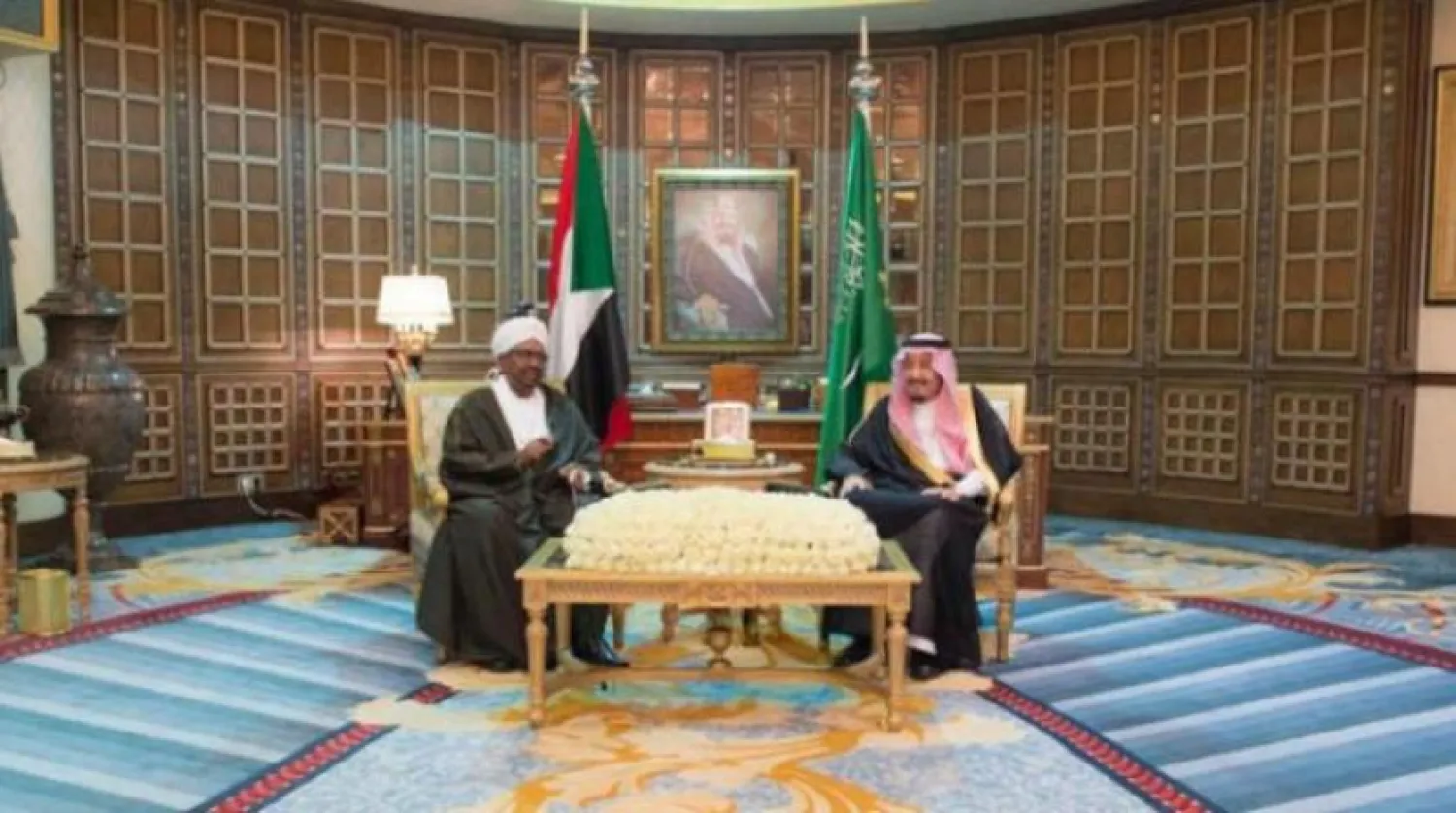Sudanese President Omar Al-Bashir arrived on Tuesday to Saudi Arabia on an official visit to the Kingdom.
At King Salman Airbase Airport, the President was received by Riyadh Region Governor Prince Faisal bin Bandar bin Abdulaziz, State Minister and Cabinet Member Dr. Musaed bin Mohammed Al-Aiban, and a number of officials.
After his arrival, Bashir met with the Custodian of the Two Holy Mosques King Salman bin Abdulaziz at his palace in Irqah, a town west of Riyadh.
The King and the president held official talks, during which they discussed bilateral relations binding the two countries, in addition to latest regional developments.
The meeting was attended by the Riyadh Region Governor, State Minister and Cabinet Member Prince Miteb bin Abdullah bin Abdulaziz, National Guard Minister Massed bin Mohammed Al-Ayban, and State Minister and Cabinet Member Ibrahim bin Abdulaziz Al-Assaf and Finance Minister Mohammed bin Abdullah Al-Jada'an.
It was attended, also, by the Sudanese accompanying delegation, including the Foreign Minister Prof. Ibrahim Ghandour, Director of the Security and Intelligence Lt. Gen. Mohammed Atta and the Sudanese Charge D'Affaires to the Kingdom Dr. Ahmed Al-Tijjani Suwar.
Sudan has suffered under US trade sanctions for two decades and only recently the sanctions were lifted.
Sudanese officials have acknowledged Saudi Arabia’s role in having the sanctions lifted.
Bashir expressed "thanks and gratitude to the king for his fraternal sentiments, and to the Saudi government for the efforts exerted to back lifting the sanctions imposed on the African country,” the Saudi Press Agency (SPA) reported.









